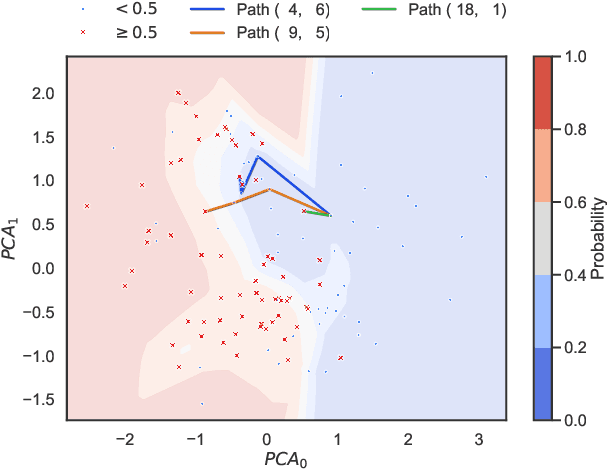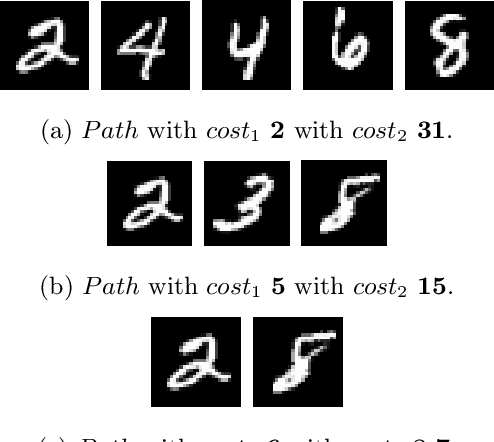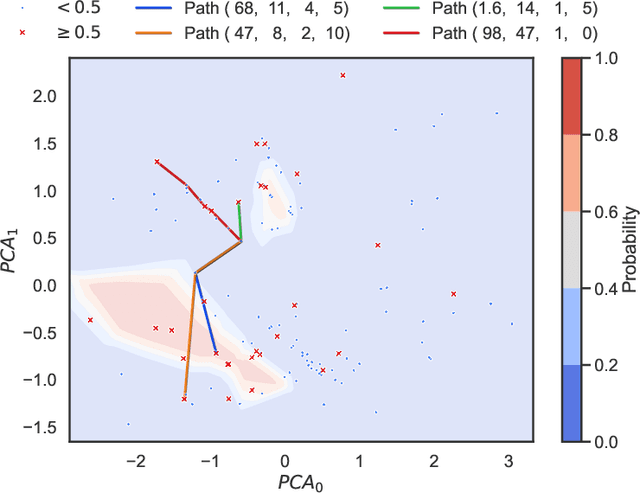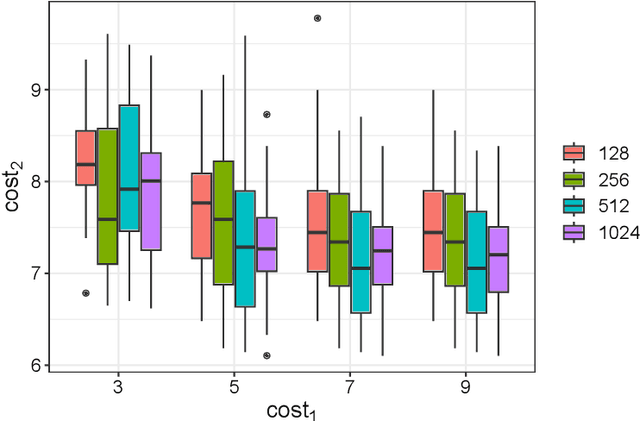Pareto Optimal Algorithmic Recourse in Multi-cost Function
Paper and Code
Feb 11, 2025



In decision-making systems, algorithmic recourse aims to identify minimal-cost actions to alter an individual features, thereby obtaining a desired outcome. This empowers individuals to understand, question, or alter decisions that negatively affect them. However, due to the variety and sensitivity of system environments and individual personalities, quantifying the cost of a single function is nearly impossible while considering multiple criteria situations. Most current recourse mechanisms use gradient-based methods that assume cost functions are differentiable, often not applicable in real-world scenarios, resulting in sub-optimal solutions that compromise various criteria. These solutions are typically intractable and lack rigorous theoretical foundations, raising concerns regarding interpretability, reliability, and transparency from the explainable AI (XAI) perspective. To address these issues, this work proposes an algorithmic recourse framework that handles non-differentiable and discrete multi-cost functions. By formulating recourse as a multi-objective optimization problem and assigning weights to different criteria based on their importance, our method identifies Pareto optimal recourse recommendations. To demonstrate scalability, we incorporate the concept of epsilon-net, proving the ability to find approximated Pareto optimal actions. Experiments show the trade-off between different criteria and the methods scalability in large graphs. Compared to current heuristic practices, our approach provides a stronger theoretical foundation and better aligns recourse suggestions with real-world requirements.
 Add to Chrome
Add to Chrome Add to Firefox
Add to Firefox Add to Edge
Add to Edge